Walking Dakar, part 2
Dirt, dysfunction, and depression
First, let me say what I appreciated about Dakar to get that out of the way. I admire the resilience of its citizens. I appreciated the renewed perspective they gave me on how hard life is for most of the world and how spoiled we first world citizens are1.
Now on to the bad stuff. Dakar, to be blunt, sucks. While my last ten-days walking it has been a grad school seminar in “first-world problems,” it’s been one hammered into my skull one open sewer, one garbage pile, one black-soot-spewing semi, one cinderblock window-less home, one fly-covered pile of fish after another.
This isn’t a “it sucks to be a tourist in Dakar” piece, because I doubt most tourists think it sucks. I think they actually like it. Because most tourists in Dakar pay $200 to $400 dollars a night to be fenced inside some luxury resort, served imported foods by waiters and waitresses in quaint local outfits, and then fly back home, never once touching anything to do with Africa beyond the novelty of its geolocation.
It reminds me how, after Trump said Haiti was a shithole, some late-night talk show host, to prove what an ass Trump is, relocated their show for a few days to a Haitian resort to say, “see, Haiti actually is great!” Well sure, every place feels great if you pay enough to hide the problems.
While shithole isn’t the word I’d used to describe Dakar, it’s not far from the truth. Dakar is a filthy, hot, polluted, crumbling, crowded city barely able to feed, house, and provide for its four million residents. Most of whom live in shanty-like homes on dirt roads, in sanitary conditions that would make almost anyone who didn’t grow up with them immediately ill, often seriously.
It’s a town of the jobless, or barely employed. Of beggars, slumped on cardboard, hands outstretched, hoping for a few coins. Of kids, often as young as one, who, at their mom’s urging, surge towards you, plastic buckets in hand, asking for anything, and if they can, clutching your pants, to be pulled into traffic if necessary. Of idle men trying to monetize their idleness by hawking whatever they can get their hands on, regardless of if it’s wanted.
Walking Dakar I keep thinking of my favorite stanza from my favorite Dr Seuss book2,
At the fork of a road
In the Vale of Va-Vode
Five foot-weary salesmen have laid down their load.
All day they’ve raced round in the heat, at tops speeds,
Unsuccessfully trying to sell Zizzer-Zoof Seeds
Which nobody wants because nobody needs.
There is one guy near my hotel I pass about four times a day, who stands in the center of a chaotic intersection, never seeking shade, holding three Scrabble board games and four Weight Watcher branded scales, pitching them to each car rushing by, or even better, each car stuck in a jam.
I won’t give him credit for novelty, because there are a dozen other Scrabble and Weight Watcher scale salesmen on that stretch of busy road, but I will give them all credit for persistence and stamina, because even half a minute in Dakar’s searing sun being sprayed with fumes and dust does me in.
It’s a town of clutter and dysfunction. Of traffic so thick, so disorganized, so haphazard, that it regularly spills over onto sidewalks, making for pedestrian/car/animal/moped/bus/handcart jams, that, while funny for their absurdity, are also dangerous. Where a bottleneck, caused by the mutual obstinance of a hand cart stacked with roach poison and a taxi with two goats on its roof, becomes so deep, so tight, that women, already loaded down with head packs, have to dive into whatever stall is nearby, or be crushed.
It’s an unsafe town, where exquisitely painted hack buses, sensing a rider is to be had, swerve into crowds with only a warning beep, which unless you’re nimble, gets you a crushed foot or a side-mirror smack to the back of the head.
It’s a filthy town, with garbage piles and puddles of raw sewage. With cars belching cartoonishly dark black soot, and animals shitting everywhere. I come back from each walk coated in grime, which after a shower and change of clothes, is right back on me, Pigpen like. Even the “upscale” places are dirty, with only the more obvious surfaces clean. Don’t grasp the underside of a chair, or the bottom of a table, or the back of handle, in Dakar.
There is so much filth in Dakar that the residence seem to have acquiesced to the unsanitary. There is a large market near me with some temporary underground work being done in its center. Either electrical or plumbing. Regardless, the market has reformed around the pit, inches away from a backhoe spitting out fumes and kicking up dust. Nobody seems bothered, despite the tables of shoes, spices, and chunks of raw meat getting coated in dirt.
It’s worse the further away from the city center you go. In Pikine3, the large slum in the NE, women sell trays of fish that are almost impossible to see for all the flies on them, while other food vendors stoke their fire pits with crumpled up plastic bags, mixing noxious fumes with the roasting lamb.
But again, this isn’t me complaining about how depressing a trip this has been. I came here by choice and by residents’ standards I’ve got it really good. I’m staying in a sweet hotel, with working AC, hot water, and a small restaurants whose cook serves up a different Senegalese dish every night. And, assuming nothing goes wrong (and lots goes wrong in this country), I’ll be on a plane early tomorrow morning and out of here.
That is the biggest reason I have nothing to complain about.
I’ve written a lot about how many of the places I’ve visited, even poorer places like Hanoi, actually have it good compared to the US. Not in material terms, but in the sense of residents who are happy, content, and deeply fulfilled because their life isn’t just about the material.
When I write about this, I run a thought experiment in my head: If a resident of X could push a button and immediately be given a working class or middle class life in the US, would and should they?
The answer to the first part, would they, is clear. Almost everyone in the world would push the “move to US” button if they could, because it means an AC always set below 70, more space, less garbage, a nicer car, and kids that will become doctors, lawyers, and engineers.
People can easily visualize the obvious undeniable positives of moving to the US, which are tangible and material.
While I certainly get that, a lot of foreigners have an idealized and romanticized view of the US, and don’t fully understand, or think about, the downsides of moving to the US.
Like the severing and withering of the webs of meaning that give so many people outside of the US a transcendent place in the world. Like the erosion of community, family, faith, tradition, safety, etc. Things that are fulfilling at a deeper level than TVs and cars.
It’s this accounting trade off — is the material gain worth the spiritual loss — that I think a lot about when addressing the second part of my thought experiment, “should someone push the ‘move to the US button'?’”
For most of the developed world my advice4 would be, don’t push the “move to US button5.” That includes most residents of places like Taipei, Seoul, and Istanbul, because being well-to-do, or middle class there is better than being middle class or poor in the US.
If it was a Vietnamese, or a Romanian, or even a Ukrainian asking me, I would tell them it’s not clear what the right thing to do is, that the trade offs seem about balanced, and they should do whatever their gut tells them to do.
Dakar is the first city I’ve walked where my answer would be an unequivocal, resounding, unflinching, yes, push the button. As fast as you can. As much as you can. Without hesitation. Get out of Dakar because your city, and your country, which I am sure you love, isn’t doing you justice. Isn’t providing you the basics needed for living a full, healthy, dignified life.
Which of course, is all the more depressing because pushing the button is not an option for 99% of Senegalese.
It’s also depressing because people shouldn’t have to give up so much: their culture, their family, their sense of place, their pride in their country, to have a better life. There should be enough faith with the direction their city and country is moving, that staying put is the right choice, over time. Even if means temporarily giving up a little material happiness.
But I don’t see that happening here in Dakar. Not in most people’s lifetimes. Maybe I’m wrong and a lot of the “Africa is going to be the next Asian miracle” hype isn’t hype. But I certainly don’t see it.
Dakar sucks, and it looks like it will keep sucking for the foreseeable future.
The bulk of my cynicism comes from my last eight days walking Dakar, but some of it also comes from seeing who’s both hyping Africa’s future while hyping their solutions to its current problems: the global non-profit industry, including firms and people who have never set foot in Africa, outside of some conferences in a convention center.
The exceptions to Dakar’s filth, crowds, and poverty are a few very fancy resorts that hug the coasts. Places that cost up to $450/night. Places that are Senegalese themed theme parks.
This past weekend there was a conference at the fanciest resort in Dakar, the one with its own golf course. The title was something like, “Solving all of Africa’s problems, 2023!” and representatives of various global non-profits, charities, and NGOs were flown in to spend four days talking about what Africa needs. Presumably something only they and their friends can offer.
I saw this out-of-touch hubris when I worked on the “Emerging Markets” desk of Wall Street, but at least there it wasn’t dressed up as selflessness. It was avarice and acknowledged as such. We are going to make money from you, and maybe it will help you. But the first goal is to make money from you.
That is bad, but the whole, “we aren’t out to make money, only to help you” thing of the non-profit industry is somehow worse. Because it’s a lie and a scam.
Senegal needs a lot of things, but they don’t need more advice from an of out-of-touch policy class with no skin in the game, no commitment to the place, beyond what helps them builds their own resume and status, and a few more $5,000 junkets to Africa.
What they really need is to be left alone to do their own thing, as they want to do it. Not to be played with as the “thing of the moment” by bored technocrats looking to technocrat.
Update: I did make it out of Senegal, on a plane where I think I was the only person not going on a Hajj pilgrimage.
It was a reminder, that despite the above “Dakar sucks” rant, it’s a city with a lot of spiritual wealth, which I’m a big fan of, but which, as Dakar reminded me, can only get you so far when the material is so very rotten.
Or to put it another way, my issue with Dakar is only about the material issues.
Us well educated Americans especially. Born at the top of the world, above it all, and yet riddled and obsessed with problems stemming from having what everyone else in history has dreamed of having — a surfeit of stuff. Which is easily solvable, in theory. Just let ourselves descend down a notch. Loosen up, let go, and back off on our continual chase for money.
Easier said than done it seems.
Dr Seuss’s Sleep Book.
I have no pictures of Pikine, because as I wrote in the first part, pictures of such poverty seem so wrong.
Should anyone actually ask me, I would be really loath to give my actual advice, because despite writing all of this, I’m not sure I know the right answer.
Obviously this is about averages, and there are always individual cases, especially of minorities, where I would always suggest moving to the US.


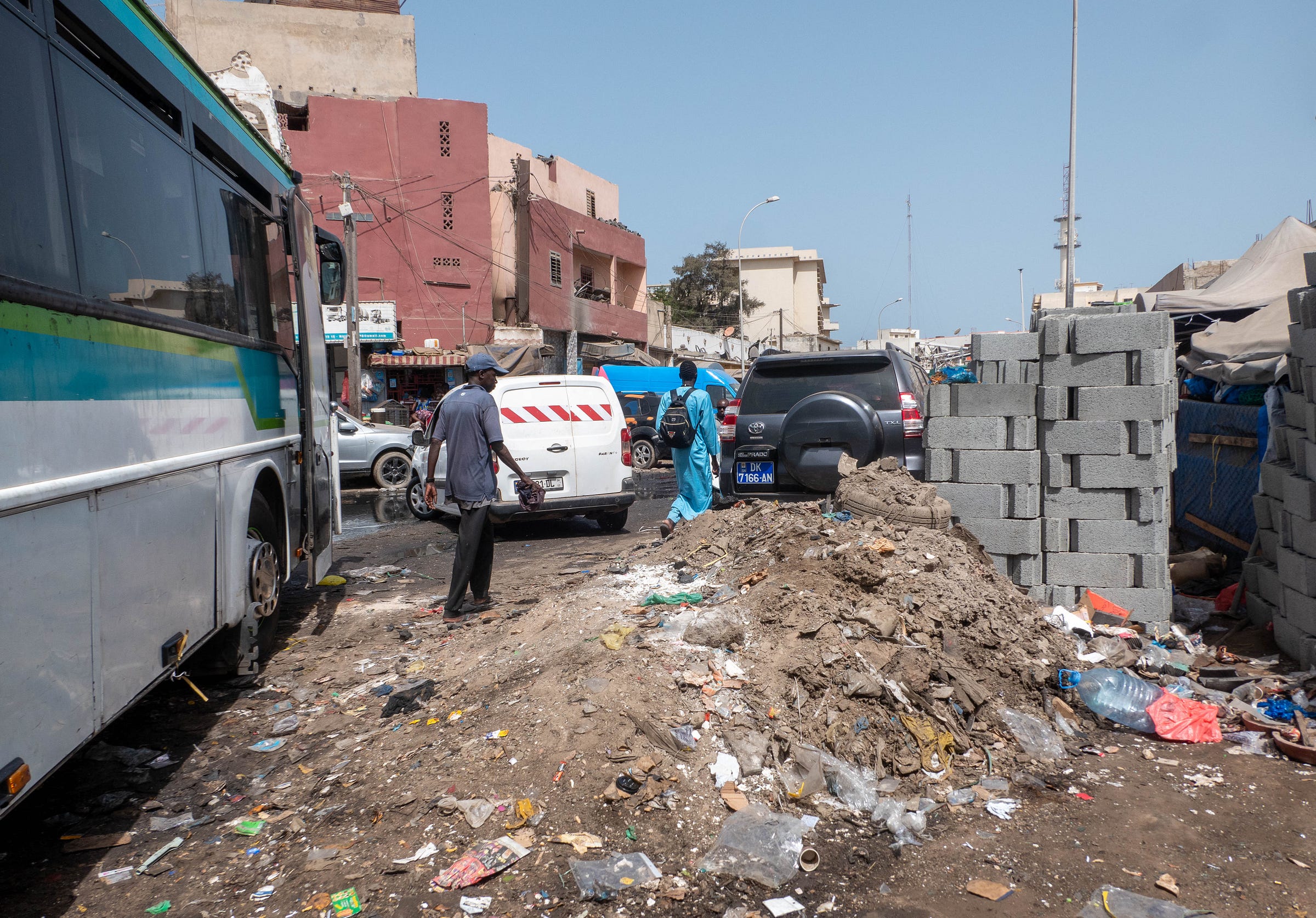
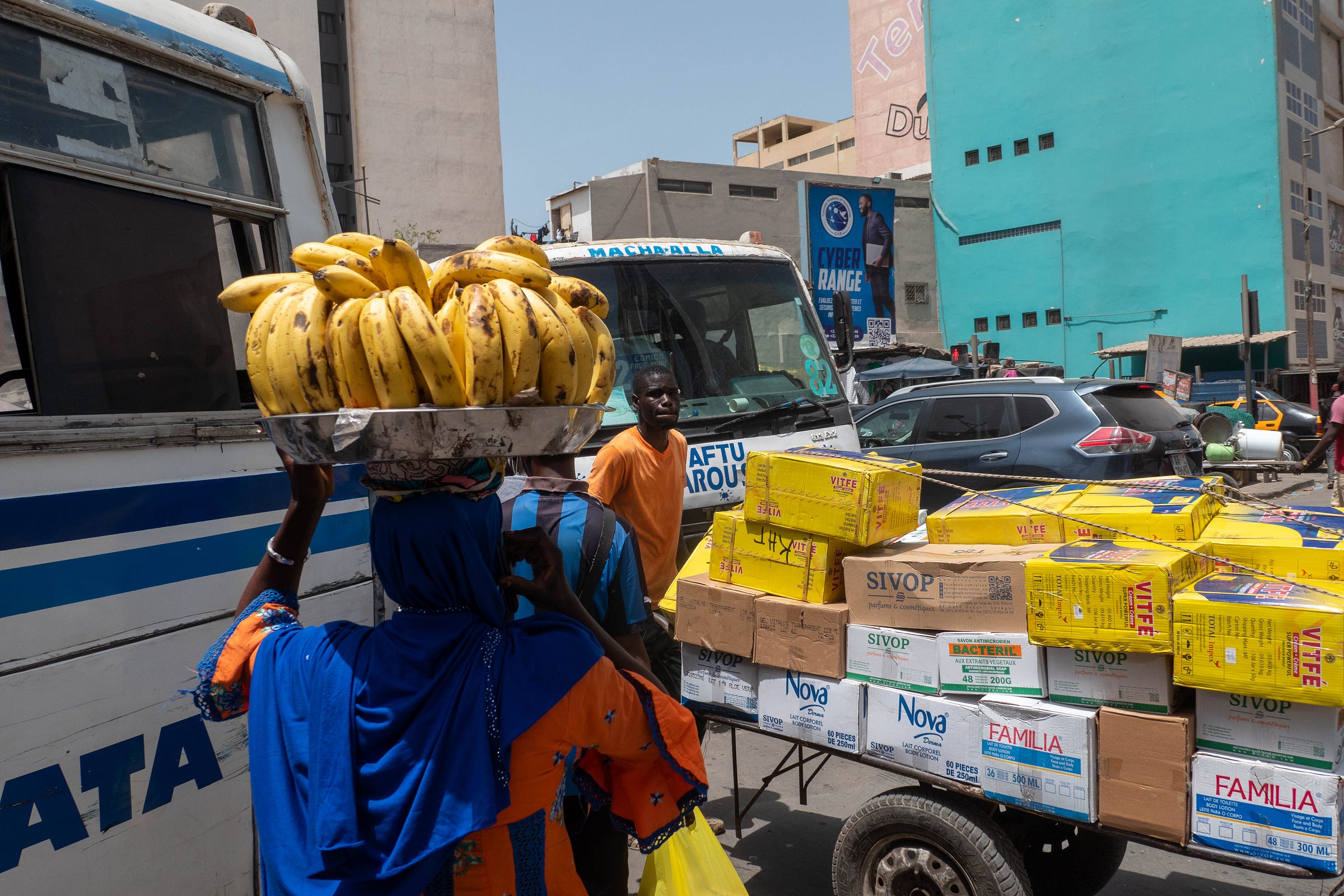
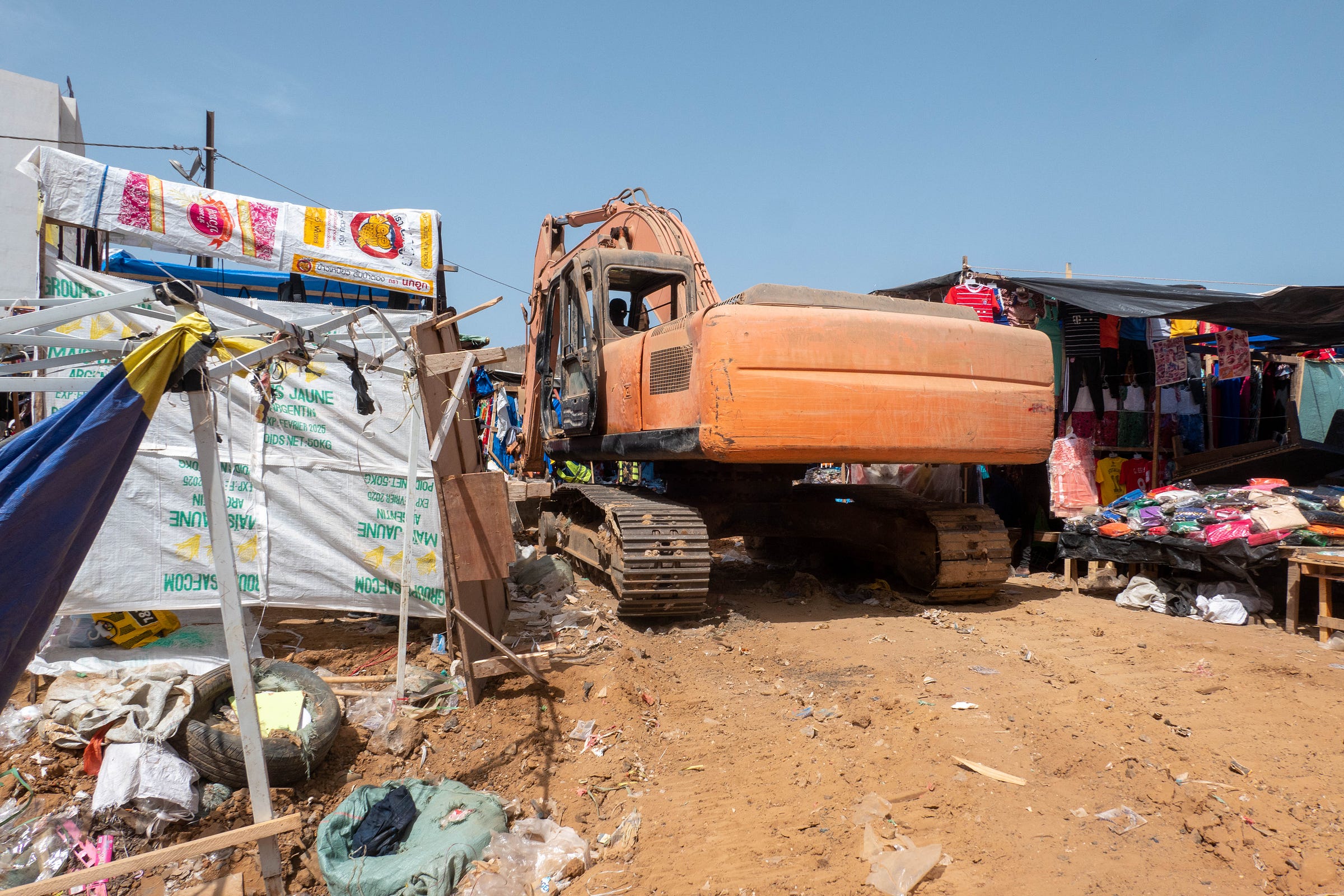
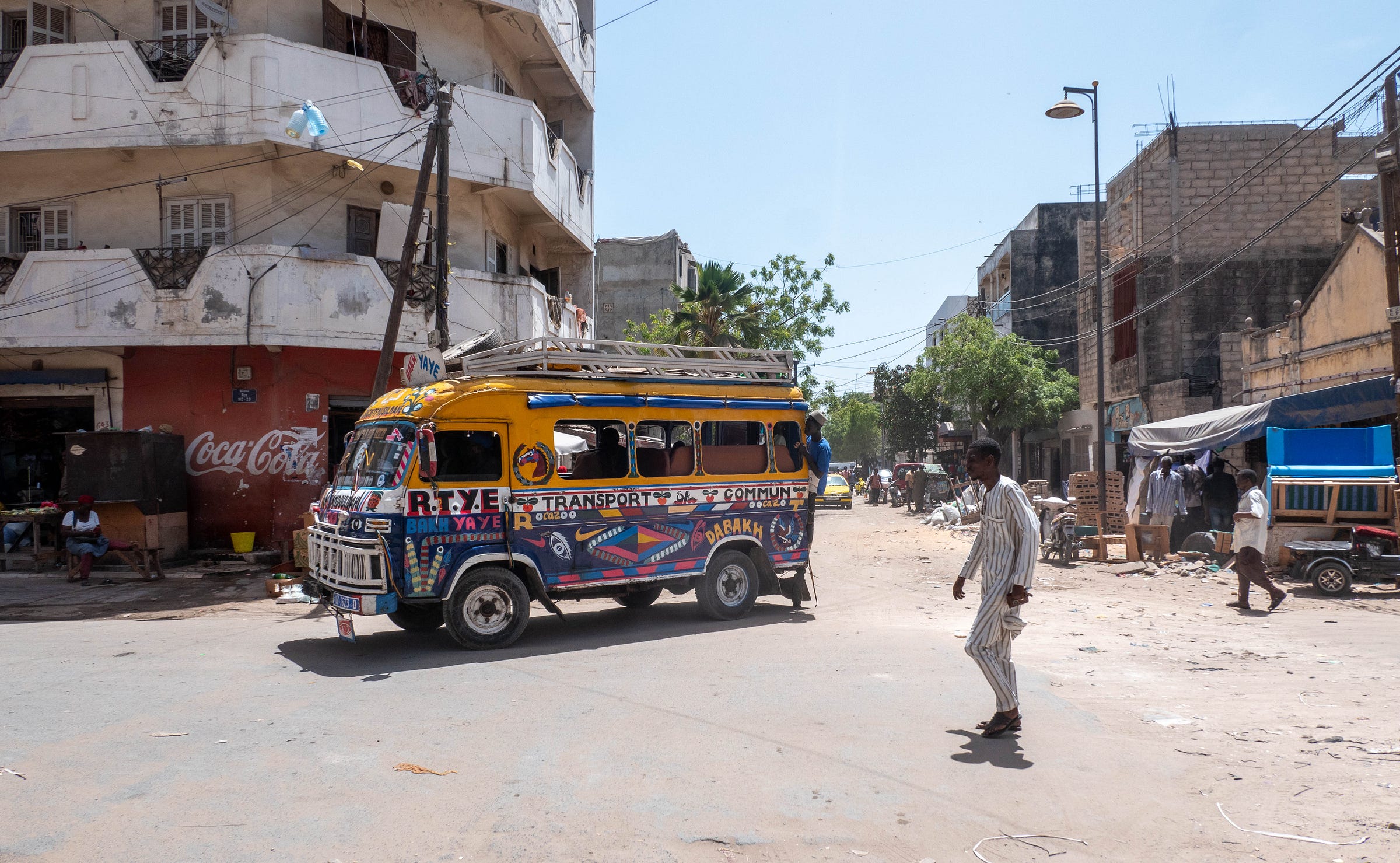
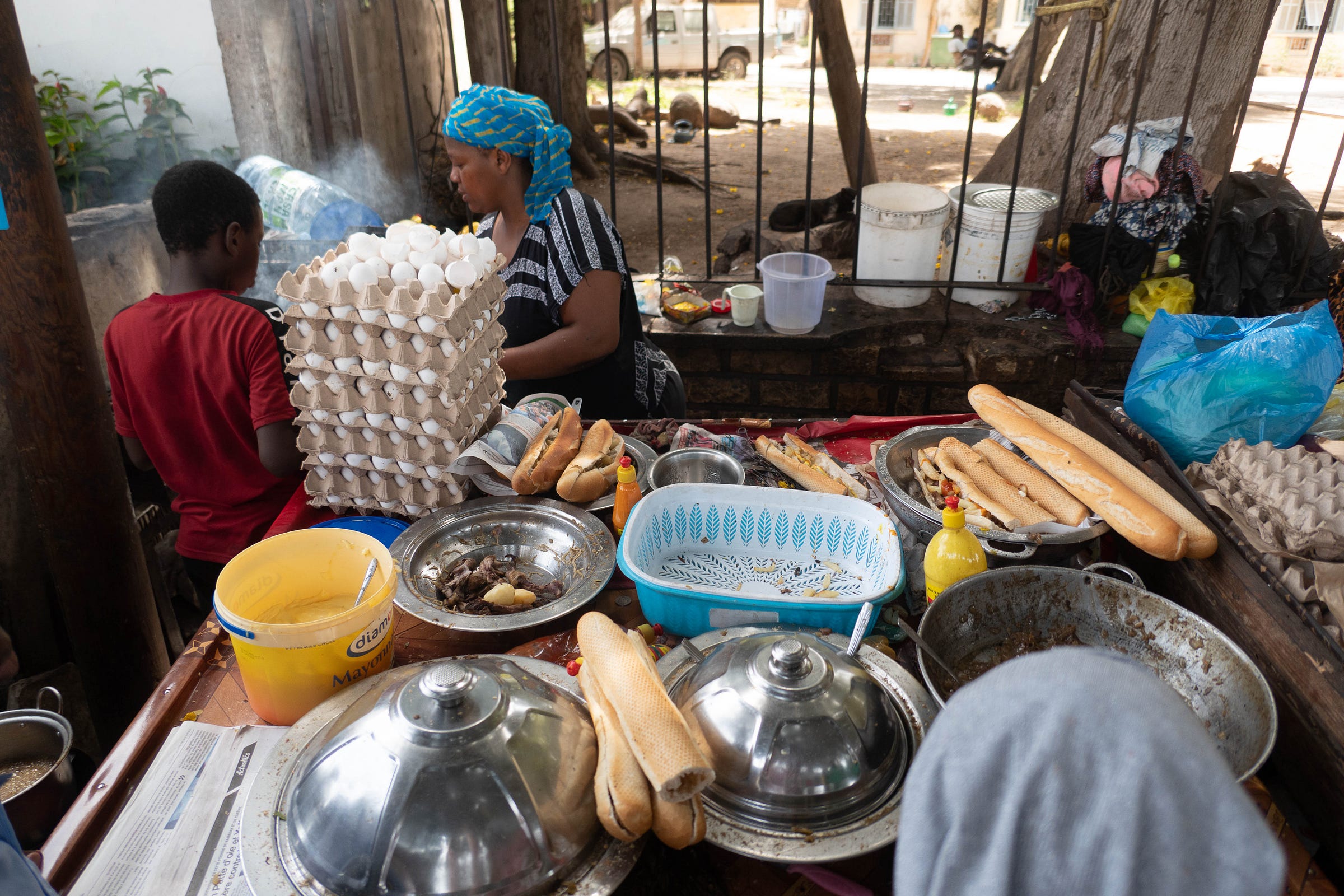
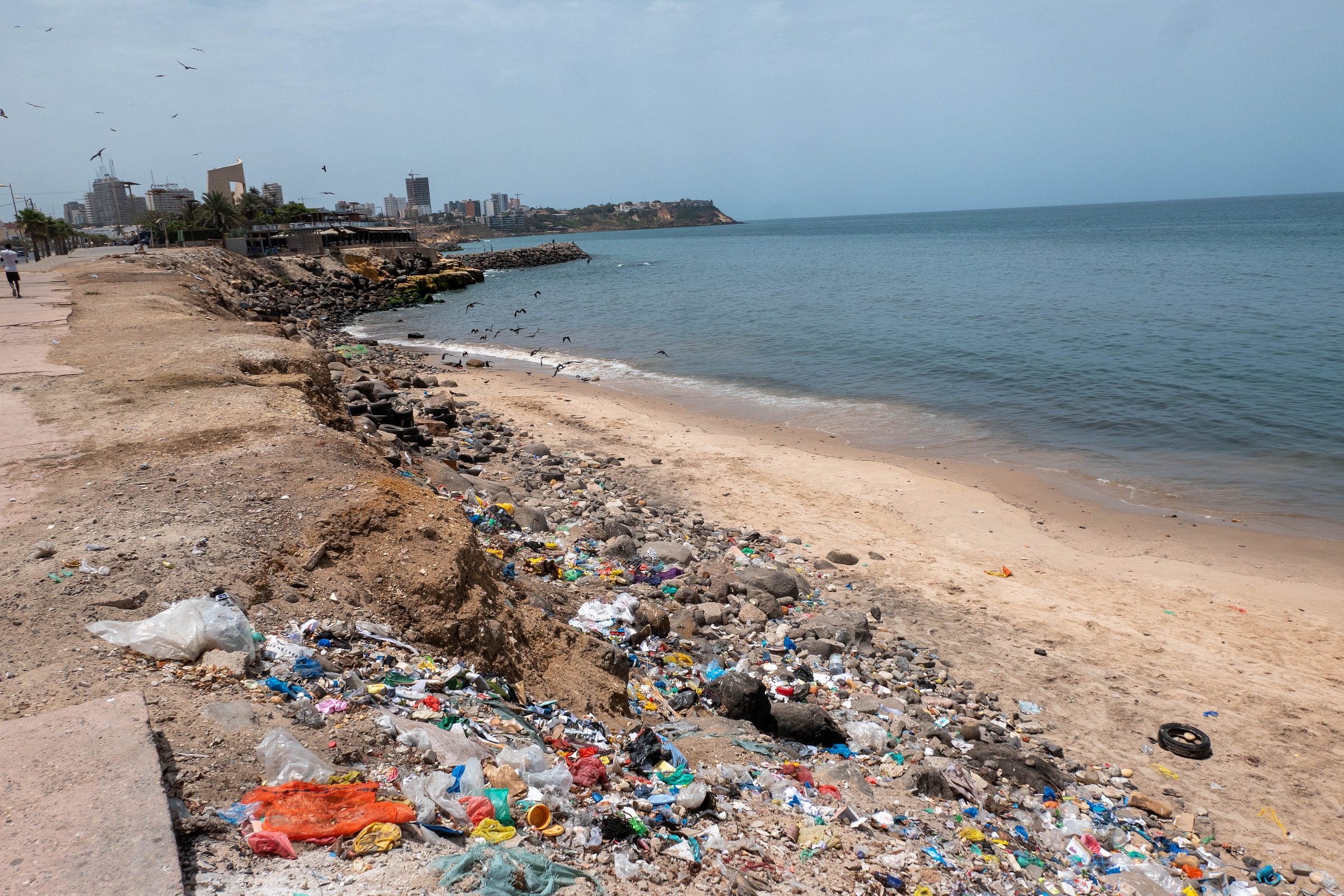
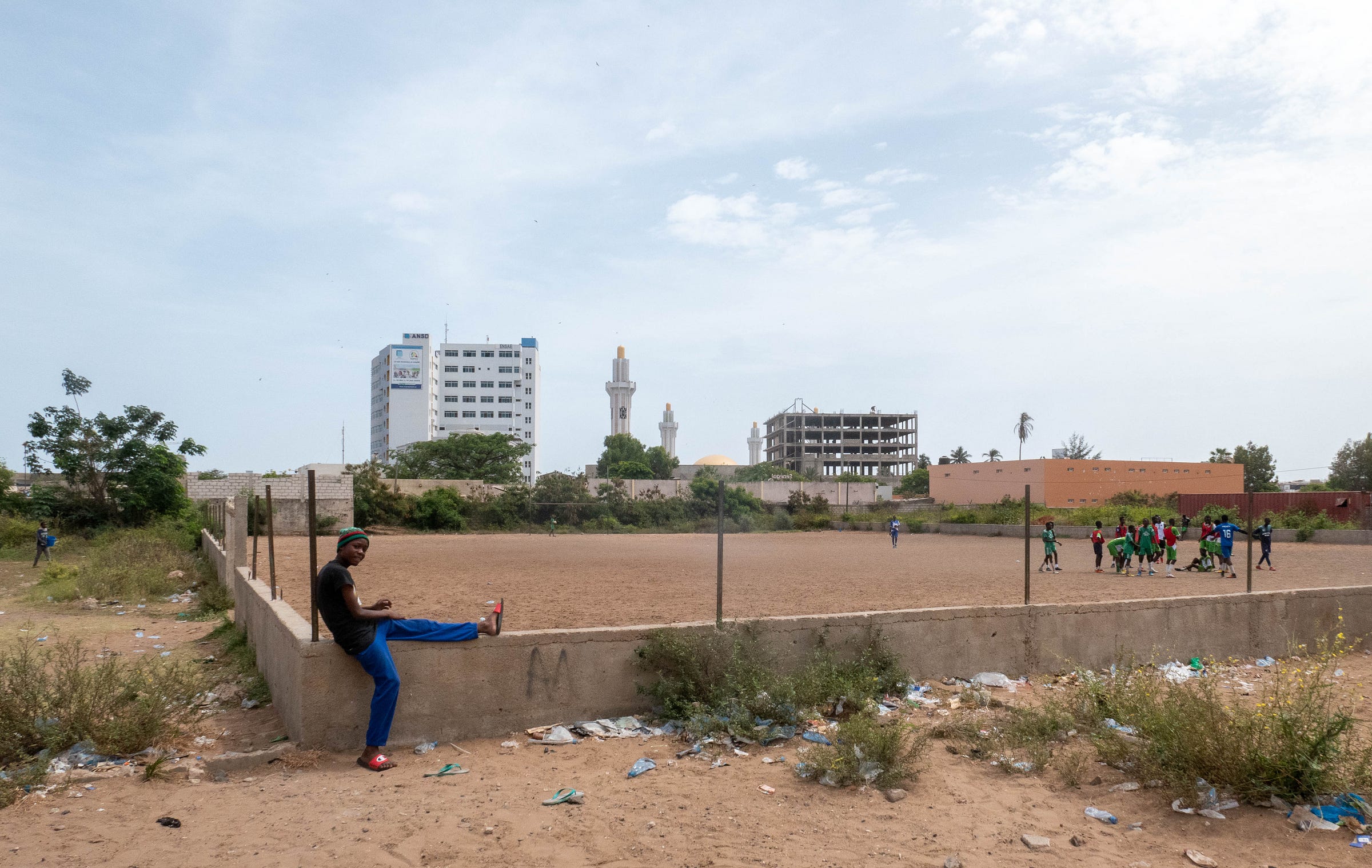
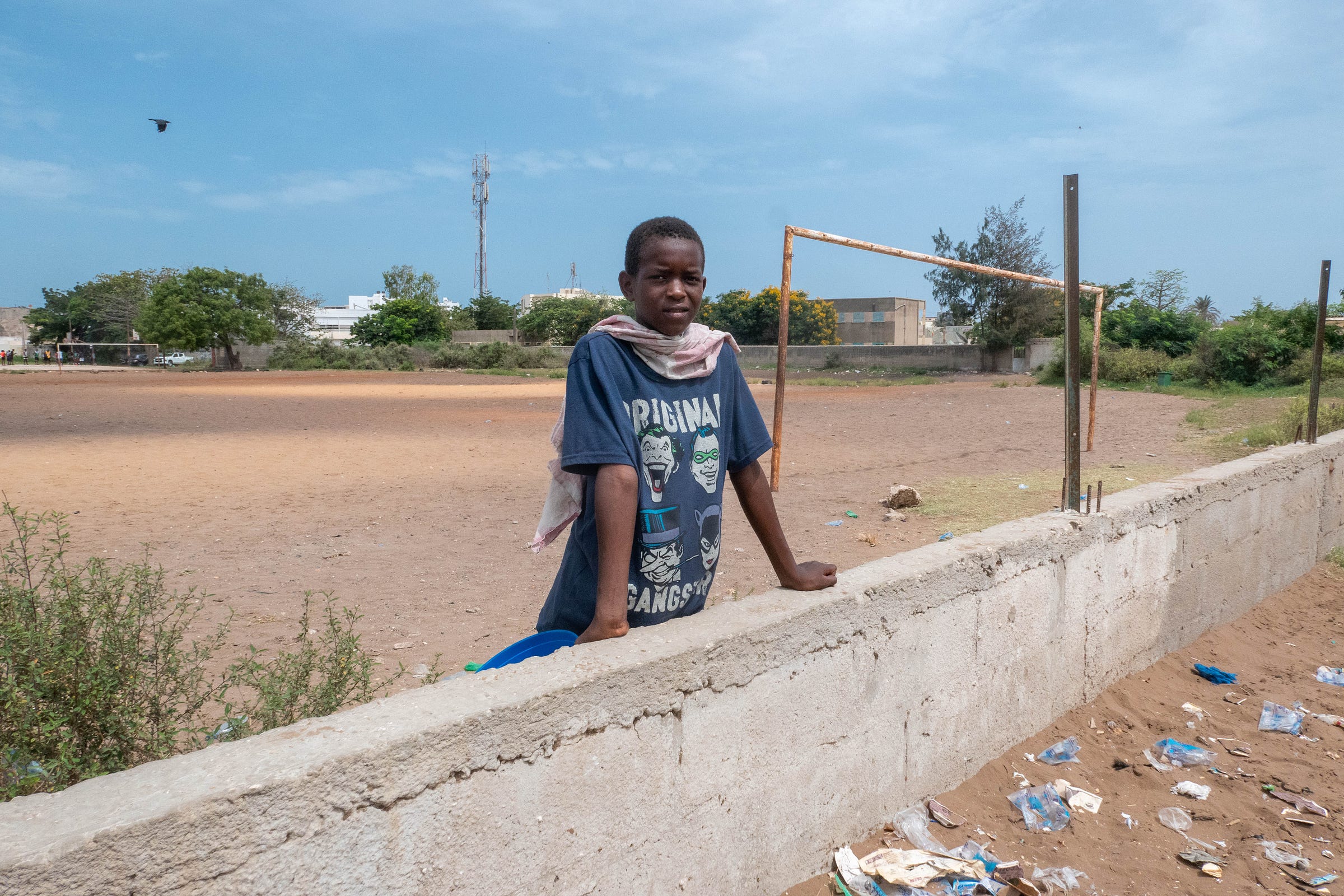
Everything you wrote here rung true to my own experience of living in the likes of Lagos, Nigeria; Addis Ababa, Ethiopia; Dar es Salaam, Tanzania for several years a decade ago. (Don't hate me, I was mostly there on the "honest" profit-motive rather than as a do-gooder). Except the part where you didn't like it.
I LOVED living in these places.
Because one thing that maybe you didn't notice in your walks through Dakar over a week is that there's another "soft infrastructure" that very much increases quality-of-life at least somewhat counteracting the pollution, lack of sanitation, abject poverty, traffic, underemployment, etc. It's how much more lively and social these places are. It's easy to feel disgusted, but very hard to feel lonely.
You noted this in Hanoi. And you've commented on the spirituality of the Senegalese. But it's there in so many aspects of life. The music (enjoyed in open air, with a crowd, while dancing). The communal meals (often fed to you disgustingly by unwashed hands!). The humor (essential armor against degradation). The tendency for other people very much not to "mind their business," like it or not, and get involved in EVERYTHING. Privacy? Forget it! Life in these "shithole countries" is more dirty and dangerous than empathetic people may want to admit, but it's also much fuller in more subtle, but essential ways.
I now live in the high-HDI utopia that is Scandinavia, where you can walk unencumbered through urbanist cities or through forest and field wielding the ancient privileges of Allemansrätten. And it is really really nice. A MUCH better lifestyle, IMO, than my native United States. The hygge hype is real.
But here I miss this thing that you do have in these not-so-nice places. The street life. The energy. The human-ness. I lack that all the time. It's a persistent longing deep in my heart. And I know that a lot of the African people who have taken your advice to say yes and overcome the odds to get here as often-unwelcomed immigrants, they miss it, too. Most still don't return, given the obvious practical downsides of back home and the sunk-costs they underwent to get here (with all the hopes and expectations of whole clans at their backs), but I doubt they or I will ever quite recreate what we had down there in this spotless, somewhat limpid utopia.
If only you could have it all...
Excellent piece, Chris. I think people often shy away from writing an honest account of a place for fear of being misconstrued as an unfair attack on its people, but I think you’ve framed it perfectly here.
When I was fresh out of uni about 8 years ago, I spent 2 years living and working in Southern and Eastern Africa. I only worked for tiny non-profits, but my lofty aim at the time was to work my way up to a big organisation like the UNDP or World Bank. I wanted to spend my life doing good. Two years I pursued that naive dream. Two years seeing broken promises, poor planning, and out-of-touch decrees from the air-conditioned offices and pristine Toyota Hiluxes, made me realise it was all a sham. The best that could be hoped for was a slight improvement in health outcomes. Economic development remained ever elusive. So much money spent on white elephants and shiny infrastructure that turned to rust after the projects moved on.
In truth, it took me far too long to realise no country is ever developed from the outside-in. Fair economic terms, good governance, and patience for a generation are what it takes. There is little room for the NGO, technocratic class in that equation. There was little room for me.
My dream was to combine doing good while travelling the world, but in the end I realised the only person I was helping was myself.